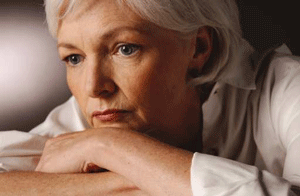 You all have been so good to me over the years! I want to be the first to share what I think is really wonderful news. You have helped me understand that my befuddlement over tattoo mania is just a generational difference, that driving only station wagons is a perfectly reasonable vehicular choice and that there are plenty of other dog lovers out there. I appreciate when you have straightened me out on a number of weightier issues as well.
You all have been so good to me over the years! I want to be the first to share what I think is really wonderful news. You have helped me understand that my befuddlement over tattoo mania is just a generational difference, that driving only station wagons is a perfectly reasonable vehicular choice and that there are plenty of other dog lovers out there. I appreciate when you have straightened me out on a number of weightier issues as well.
So, here is some good news for you.
If you are mid-life and feeling a bit low about things, you are very likely heading into the happiest years of your life.
Say what?
Happiness is the thrust of the cover story in the current issue of The Atlantic magazine, chronicling recent research indicating that we get happier, more contented and wiser as we age. Researchers use a U-shaped curve to graph this transition in human life. It is a visual representation of the burst of energy, optimism and creativity that accompanies young adulthood, followed by the slump, sometimes referred to as a midlife crisis, that overtakes many people in their 40s and 50s. The right side of the U is the uptick life often takes for people beginning in their mid 50s, bringing with it a sense of peace, well-being sometimes despite chronic health issues, acceptance and gratitude.
The science of the U-curve is in its infancy for all sorts of reasons. Happiness is like pornography. We all know it when we see — or in this case — feel it, but it is impossible to define. In addition, the whole concept of a midlife crisis is relatively new, first appearing in a 1965 scholarly article. The Atlantic depicts a midlife crisis with photos of a sad looking middle-aged fellow decked out in a moto leather jacket and shades as he hangs morosely over the door of a red Corvette. Until recent human history, though, no one worried about midlife crises, because most people did not live long enough to have one. Today, however, being middle-aged almost doubles your chances of taking antidepressants.
Each human being is unique, of course, and it appears that some of us simply do not experience the swoop of the U-curve, but many of us do. What is more, scientists are finding indications that the U-curve exists across genders, nationalities, cultures, survey questions, population studied and methods of analysis. In other words, people who experience the U-curve felt their lowest at the average age of 50 when the pressures of life buffet us relentlessly. Satisfaction with their lives climbs steadily after that nadir. In addition, studies also show that social reasoning and long-term decision making — maybe this is what we think of as wisdom — improve as we age. We also become increasingly spiritual, especially if we are women. There is evidence, too, that older people cope more readily with life’s complexities and ambiguities. They go with the flow.
While some scientists blanch a bit at this, other researchers have found evidence that some of our closest genetic cousins, chimpanzees and orangutans, also experience the U-curve. And how do we know since we cannot ask them directly and they cannot fill out a survey? Zookeepers and other animal caretakers observed them and filled out the surveys in their stead. Suspicious science? Maybe, but I can tell when Lovely Lilly the Lab is feeling a little blue.
A young person recently told me I am so lucky to be at my stage of life. “Why do you say that?” I asked. “Because,” she said, “your major life decisions, the really hard ones like career, choosing a life partner, whether to have children and how many are behind you. You do not have to worry about making big mistakes in those critical areas of life.”
I have thought a great deal about this conversation and realize my young friend is right. Those major decisions have been made, and I do have a sense of well-being that I did not have not so very long ago along with a sense that the rest of my life will revolve around the people, both family and friends, who mean the most to me. I look forward to most days, even the uneventful ones, to traveling more, to watching the Precious Jewels grow in their adult lives.
The Atlantic quotes the late author Donald Ritchie on the progress of life, what we are now coming to think of as the U-curve. Said Ritchie, “Midlife crisis begins sometime in your 40s, when you look at life and think, ‘Is this all?’ And it ends about 10 years later, when you look at your life again and think, ‘Actually, this is pretty good.’”
In this season of thankfulness, the U-curve seems like one more reason to be filled with gratitude.
Happy Thanksgiving to you and yours from the Dicksons.
Blessings,
Margaret